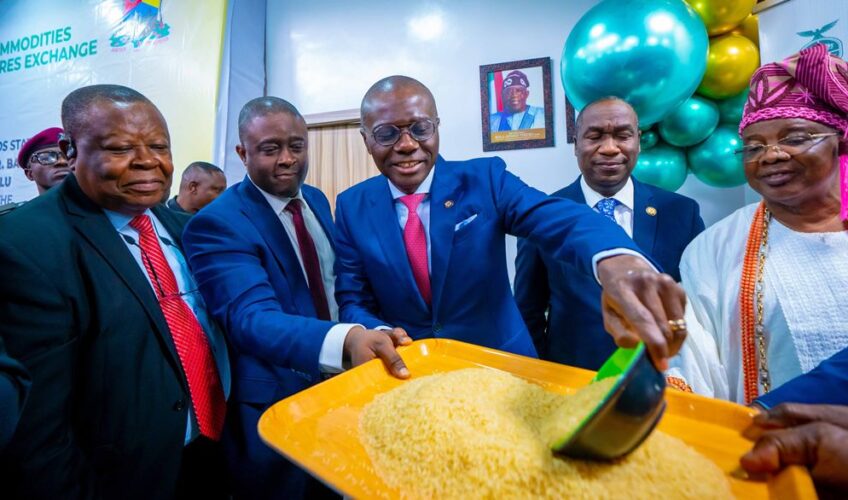The launch of Eko Rice, produced by the Lagos State-owned Imota Rice Mill, marks a significant milestone in the State Government’s commitment to promote agriculture and enhance food security.
With the listing of Eko Rice for trade on the Lagos Commodities and Futures Exchange (LCFE), Governor Babajide Sanwo-Olu’s N5 billion Eko Rice Forward Contract Programme has set the stage for a new era in the agricultural sector.
This deep dive article explores what this initiative entails, its potential impact on the market, and the efforts being made to revolutionize the commodities market in Nigeria.
Revolutionizing Agricultural Practices
The Eko Rice Forward Contract Programme, a joint venture between Lagos State Rice Company (LASRICO) and Commodities Tradenet Limited, signifies the State Government’s commitment to ensuring undisrupted supply, enhancing quality management, transaction efficiency, and transparency.
As the first series of the N30 billion Private Commodity Notes Issuance Programme facilitated by Lagos State, this initiative paves the way for future collaborations and investments in the agricultural sector.
Eko Rice is poised to contribute significantly to Nigeria’s quest for self-sufficiency in rice production and enhance food security.
The Imota Rice Mill, with its 32-metric tonnes per hour capacity, will play a crucial role in increasing domestic rice production, reducing import dependence, and providing a stable and affordable food source for Nigerians.
Ensuring Quality and Fair Competition
The private listing and trading of Eko Rice on the commodities exchange has generated enthusiasm among commodity brokers, farmers, and investors. The well-cleaned grains and high-grade texture of Eko Rice position it as a formidable competitor to imported rice in the market.
Laboratory tests have also certified Eko Rice to have less than 2% impurity and 14% moisture content, further reinforcing its quality and reliability. These certifications give consumers the confidence that they are purchasing a locally produced, high-quality rice variety that meets international standards.
Building Trust and Confidence
The listing of Eko Rice on the commodities exchange market is a significant milestone for the capital market in Nigeria. Rice is one of the 13 crops approved by the Securities and Exchange Commission (SEC) for trading at the LCFE.
The collaboration between the LCFE and the Lagos State Government aims to drive paddy supply to the Imota Rice Mill, integrate stakeholders in the rice value chain, and standardize head rice and paddy rice in Lagos. This partnership not only instills confidence in investors but also promotes transparency and credibility in the commodities market.
Unlocking Opportunities for Stakeholders
LCFE Managing Director, Mr. Akinsola Akeredolu-Ale, highlighted the investment opportunities in the rice value chain and the participation of capital market operators. The trading of Eko Rice Forward Contracts provides a platform for rice distributors and stakeholders to engage in trading activities while ensuring minimal credit risk. The underlying commodity guarantees a return on investment, making it an attractive proposition for market participants.
The launch of Eko Rice and its listing on the LCFE also signifies a significant stride towards transforming the agricultural landscape in Lagos State. This initiative fosters a sustainable ecosystem that promotes food security, economic growth, and self-sufficiency. As Eko Rice gains traction in the market, it not only addresses immediate concerns but also serves as a blueprint for other states in their quest for agricultural excellence.
As Eko Rice gains traction in the market, it holds the promise of not only meeting local demand but also positioning Nigeria as a self-sufficient rice producer. The journey of Eko Rice has just begun, and its potential impact on agriculture and the economy of Lagos is promising. The future looks bright as the state continues to prioritize investment in the agricultural sector, ensuring a sustainable and prosperous future for the “New Nigeria.”

















